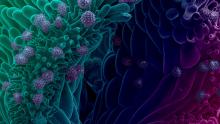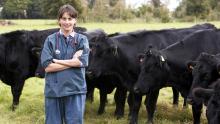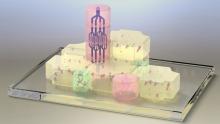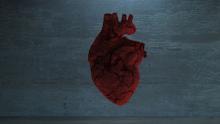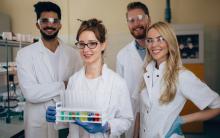Light-sensitive molecules for new disease therapies

Peptidomimetics are small molecules that mimic short natural proteins - peptides - and produce the same effects as their natural counterparts. An EU-funded project is developing peptidomimetics that can alternate between biologically active and inactive forms when exposed to light. The technique could lead to new light-controlled drugs which can be turned off and on when needed to treat cancers and other diseases.



